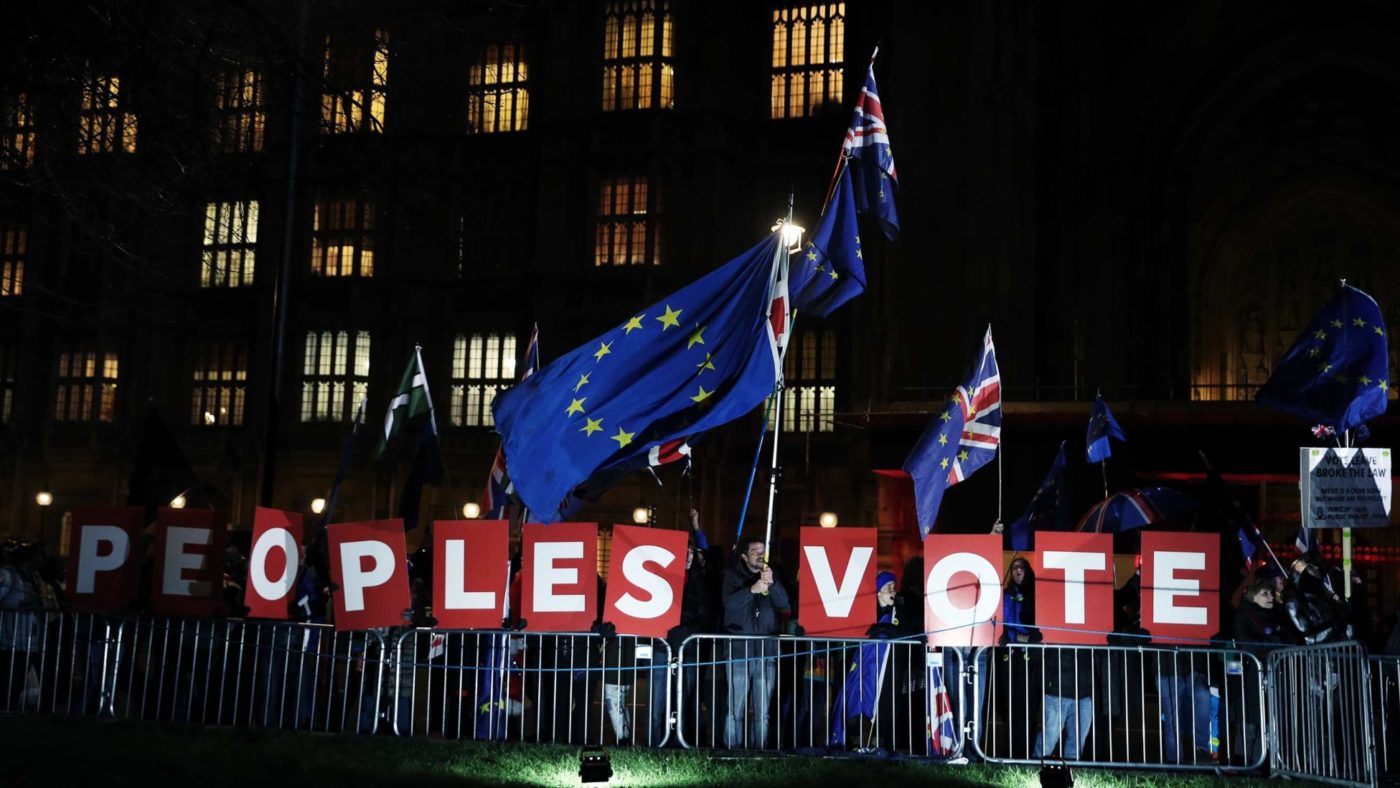As public relations campaigns go, it could hardly be much worse.
At the start of a crucial week in the great Brexit battle, the campaign group set up to fight for a re-run of the referendum, the so-called People’s Vote, is fighting itself.
Over the weekend, Tom Baldwin, the campaign’s head of communications, was apparently sacked by Roland Rudd, one of the campaign’s leaders and an apparent PR expert.
Communications guru Baldwin then decided to pop up on the Today Programme this morning to communicate his displeasure, and suggest he hadn’t been fired at all. Not to be outdone, Rudd then responded on the show, quashing any suggestion he and the rest of those running the People’s Vote are overrated muppets.
Will Rudd and Baldwin both arrive their Millbank tower offices this week claiming to be in charge? Is there be some sort of stand-off? Frankly, who cares?
Having helped set up both the group that successfully campaigned for the 2016 EU referendum, the People’s Pledge, and then Vote Leave, the official campaign group that then won the referendum, I think I have sufficient insight to suggest that this is not the way to run this kind of campaign.
The People’s Pledge was as understated as it was effective precisely because it had something every campaign needs; a crystal-clear idea of whose opinion it was seeking to change.
We needed to get sufficient numbers of MPs to commit to holding an In / Out vote. Which is why we put so much effort into grass roots initiatives in certain seats. Its why we largely ignored Radio 4, but were extremely alert to the occasion when Boris Johnson, then the London mayor, signed the People’s Pledge while on a visit to, as I recall, Romford.
It was, we understood, numbers not noise that counted. And by 2015, four years after our formation, we had what we sought; a majority government in favour of holding a referendum, with the legislation on the statue book.
To be fair to Baldwin, Rudd and the rest, public division within a campaign is not necessarily bad. Or rather, division can be worth having if as a consequence you end up with the right strategy.
Vote Leave, for example, came under constant fire from rival campaigns – and one or two Tory MPs – because we were adamant that we needed to focus on persuading undecided voters. It was worth all those public rows if at the end of it we had the right people, with the right message, running the right kind of campaign.
I struggle to see what great strategic issue is at stake for this ‘vote again’ campaign. Some suggest it’s about the extent to which the People’s Vote should openly align with the Remainiac cause, or pretend to be neutral on how to vote in any future referendum? I suspect it is even more elementary than that.
Every political campaign I have ever been involved in – from by-election campaigns in Essex to general election campaigns in Tory HQ to referendum campaigns across the country – at some point the same problem arises; there will be an endless succession of people emerge as the campaign gets underway convinced that they know what it takes to win.
How a campaign deals with this is key to ensuring it remains consistent, coherent and does not get pulled in different directions.
Vote Leave, after one or two wobbles, succeeded in leaving it to Dom Cummings, Matt Elliott and their team to run the campaign. Donors were there to donate, not strategise. Directors were there to give overall direction, not micromanage. MPs were there to support, not interfere.
The People’s Vote campaign seems stuck at the stage of having a millionaire backer wanting to call the shots. Tragic.
Of course, after Vote Leave’s victory, there was no shortage of people on hand to explain why it was we had won, which is vastly preferable to having lots of people telling how to win. A lot was said about red buses and online ads. Vote Leave’s victory was explained by those that write about the comings and goings in SW1 in terms of who said what and when in Westminster. The first draft of history, I saw first-hand, is often written as an exercise in post facto justification.
But the point is that the great Brexit battle, which began with the launch of the People’s Pledge and looks likely to close with the People’s Vote fizzling away, was never going to be settled by what happened in Westminster. There were 17.4 million reasons why Vote Leave won.
Today an even larger number of voters want the referendum result to be respected than voted Leave, which is why fundamentally the People’s Vote will not prevail, regardless of who runs it.
Millionaire City lobbyists cannot, it seems, conjure up a popular campaign to demand that the public be made to vote again. The only thing I find surprising is that anyone should ever take seriously those supposed politics and communication ‘experts’ who ever thought otherwise.
CapX depends on the generosity of its readers. If you value what we do, please consider making a donation.


